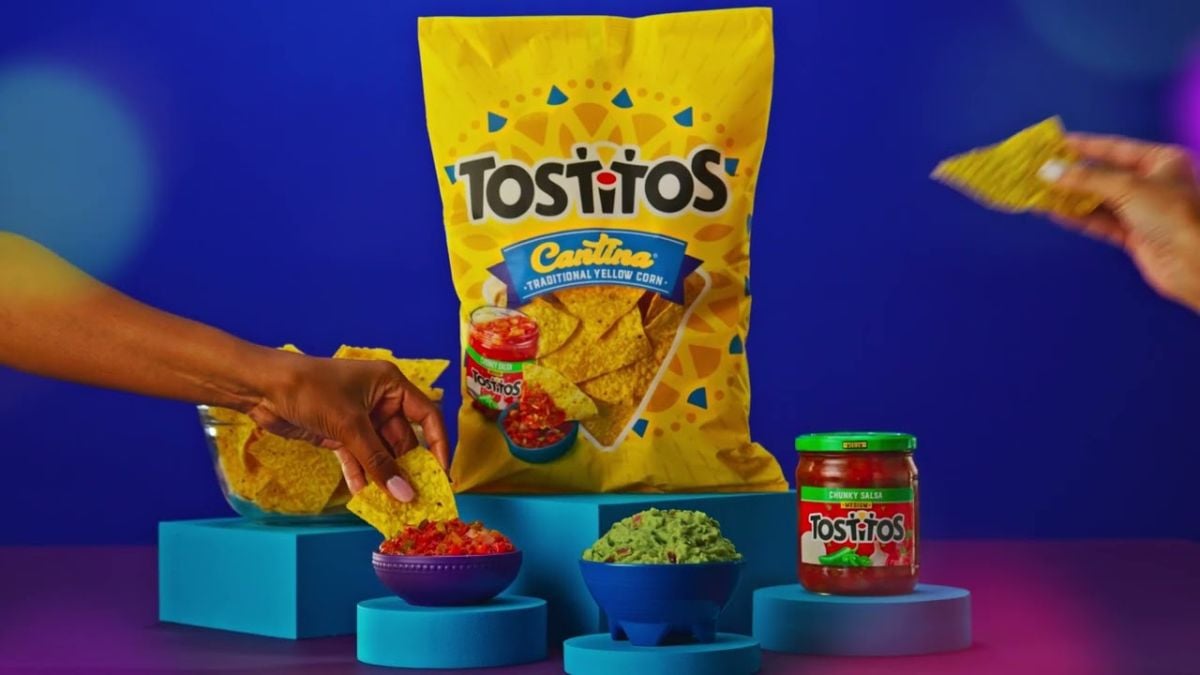
Frito-Lay reported the recall of over a thousand bags of Tostitos tortilla chips, which were sold in several states in the United States and could cause health issues for certain consumers. Here’s what you need to know.
Which Tostitos chips were recalled?
The recall involves approximately 1,300 bags of 355g Tostitos Cantina chips. The recalled product has a “guaranteed fresh” date of May 20, 2025, and a manufacturing code ending with any number between 30 and 55. According to the company, the recall does not affect any other Tostitos products.
Why were the Tostitos chips recalled?
Frito-Lay reported that the product may contain undeclared milk, which could cause serious health issues or even death in people with a milk allergy.
ALSO READ Macy’s begins closing its stores! Which ones are there and where are they?
Where were the recalled Tostitos chips sold?
The bags of chips were sold at retail stores and online in 13 U.S. states:
- Alabama
- Florida
- Georgia
- Illinois
- Virginia
- West Virginia
- Indiana
- Kentucky
- Mississippi
- North Carolina
- Ohio
- South Carolina
- Tennessee
What should I do if I bought the recalled Tostitos chips?
The company stated that consumers who purchased the affected product and have a milk allergy or any concerns can contact Frito-Lay’s customer service line at 800-352-4477 during business hours, from 10 a.m. to 5:30 p.m. (Eastern Time).
What brands does Frito-Lay own?
Frito-Lay, based in Plano, Texas, is a subsidiary of PepsiCo Americas Foods and one of the leading snack producers and distributors in the U.S. The company currently owns the following brands:
- Lay’s
- Ruffles
- Doritos
- Tostitos
- Fritos
- Cheetos
- SunChips
What is a milk allergy?
A milk allergy is an abnormal immune system response to milk and milk-containing products. It is one of the most common food allergies in childhood.
Symptoms of a milk allergy
According to Mayo Clinic, symptoms of a milk allergy vary from person to person; however, there are some common signs that appear shortly after consuming dairy products. Symptoms may include:
- Hives
- Wheezing
- Itching or tingling around the lips or mouth
- Swelling of the lips, tongue, or throat
- Coughing or difficulty breathing
- Vomiting
- Loose stools or diarrhea, which may contain blood
- Abdominal cramps
- Runny nose
- Watery eyes
- Colic (in babies)
How dangerous is a milk allergy?
In addition to the above symptoms, a milk allergy can also trigger anaphylaxis, a potentially life-threatening reaction that causes the airways to tighten and can make breathing difficult.
What foods should I avoid if I have a milk allergy?
There is no surefire way to prevent a milk allergy, so the best option is to avoid foods that contain milk. The main foods that contain the proteins responsible for a milk allergy are dairy products, including:
- Whole milk, low-fat milk, skim milk, sour milk
- Butter
- Yogurt
- Ice cream, frozen desserts
- Cheese and any food containing cheese
- Half-and-half (milk and cream)
These are not the only foods, as some products may have hidden sources of milk, such as baked goods and processed meats. Some of them include:
- Whey
- Casein
- Ingredients that begin with the prefix “lact,” such as lactose and lactate
- Sweets like chocolate, nougat, and dulce de leche
- Protein powders
- Artificial butter flavor
- Artificial cheese flavor
- Hydrolyzed products








